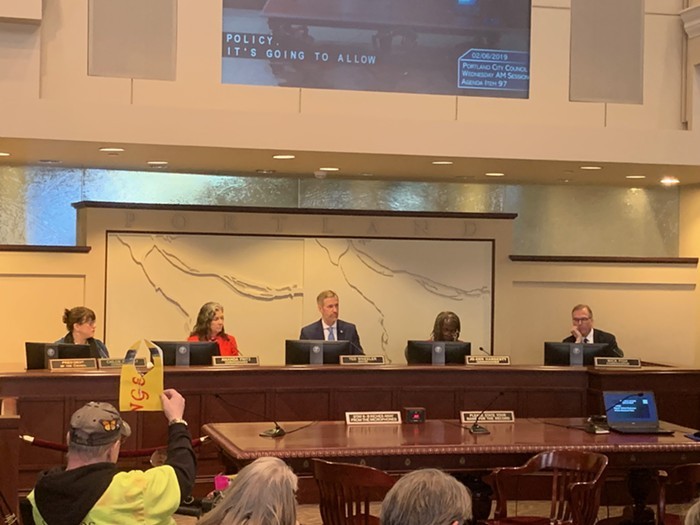A Multnomah County judge heard arguments Thursday on why a proposed ballot measure to amend Portland’s city charter may be unconstitutional.
“Political expediency does not override voting rights,” said attorney Steve Elzinga, representing the Portland Business Alliance (PBA), one of the groups challenging the ballot measure.
The decision addresses a ballot measure proposed by Portland’s charter commission, a 20-person volunteer group tasked with reviewing and suggesting improvements to the city charter. The proposed measure combines three proposals: If passed, it would divide the city into districts represented by 12 elected officials, add a city manager to oversee the city’s day-to-day operations, and introduce ranked-choice voting for all city elections.
Two different groups have challenged this proposal, both concerned that bundling all issues into one ballot measure could confuse voters and lessen the chances of the measure’s passage. In July, the PBA sued the city’s elections office, arguing that the ballot measure is unconstitutional because it violates a legal requirement for ballot measures to only address one subject. A day later, Portlander James Posey filed another lawsuit, claiming that the required 10-word caption and 20-word question that describes the ballot measure to voters does not accurately represent the proposed changes.
Both PBA and Posey argue that ranked-choice voting is too complicated for voters to understand, equating it to a form of voter suppression.
The city was hit with one more complaint around the same time, this time coming from a group that supports the proposed ballot measure. Filed by members of the voting rights nonprofit NextUp, the lawsuit also argued that the ballot title and description was too unclear for potential voters to understand.
On Thursday, Circuit Court Judge Stephen Bushong heard legal arguments in all three challenges.
“Each ballot measure can stand on its own merits,” said Elzinga, arguing that the proposed amendments should exist as standalone ballot measures. “[The] proposed ballot measure here is so broad it violates voter protections.”
City attorney Maja Haium pointed to the city’s history in her rebuttal. She explained that when Portland formed its current “commission” form of government, it was approved in a single ballot measure that combined a variety of reforms—including the elimination of city districts and downsizing of City Council seats. Like now, the proposal was challenged, and ended up before the Oregon Supreme Court.
“In 1913, the Supreme Court ruled that it was necessary to vote on the reforms as one package, because separate votes might destroy the efficacy of the reforms to city government,” said Haium. “This is no different.”
She likened the ballot measure to a three-legged stool that requires all measures to pass to operate.
“If one or two measures are not approved, the one or two legs remaining makes for an ineffective stool,” Haium said.
She also argued that the state constitutional requirement that ballot measures focus on a single subject is solely reserved for initiative petitions—or, proposals introduced by citizens who gather enough signatures to qualify for the ballot. The requirement does not apply for measures referred to a ballot from a charter commission, Haium contended.
Posey, who represented himself in the hearing, argued that the ballot title and question provided for the proposed measure was a disservice to Portland voters. He expressed particular concern that the title does not mention the intent to adapt the city’s voting system to ranked-choice, a voting style that the city has never used.
“Voters deserve to know how this new method of voting will be determined, to make an educated decision,” he said.
The ballot title and question is, combined, confined to 30 words. In her response on behalf of NextUp, attorney Margaret Olney rejected this argument, contending that the complaints about the process being too complicated were overblown and that ranked-choice should be seen as a boon for voter’s rights.
“Instead of holding their nose and picking one candidate, voters can express their preferences by ranking candidates in order,” said Olney. She did agree that the phrasing of the ballot’s question was confusing and suggested a summary of the ballot measure in the voter’s pamphlet would provide more information on ranked-choice.
Bushong appeared sympathetic to the overall cloudiness of the measure’s title, noting that as a voter himself, he doesn’t completely understand ranked-choice voting. Bushong said he will rule on all challenges to the measure no later than the end of Monday.




















